Held on October 9, 3-6 p.m
Health Sciences Learning Center (HSLC)
The Healthy Communities Summit 2025 focused on rural health.
Agenda
Welcome: 3-3:15 p.m.
- Welcome message by Shiva Bidar-Sielaff, MA, CDM, SMPH Associate Dean for Social Impact and Belonging; UW Health Chief Social Impact Officer
- Opening remarks by Nita Ahuja, MD, MBA, Dean of SMPH; Robert Turell Distinguished Chair in Medical Leadership; Vice Chancellor for Medical Affairs at UW–Madison
Keynote: 3:15-4:15 p.m.
- Keynote address “Rooted in Community, Reimagining Rural Health: Transforming Together Across the Care Ecosystem” by Shawn Lerch, Chief Executive Officer of Sauk Prairie Healthcare (SPH)
- Q&A session
Break: 4:15-4:30 p.m
Choose a breakout session: 4:30-5:15 p.m.
- From Stereotypes to Strategies: Transforming Rural Narratives and Advancing Health
- WARM mission and outcomes, addressing Wisconsin’s rural health disparities
- Health for the next seven generations: Reducing Stroke Risk Factors in a Wisconsin Tribal community
Reception and closing: 5:15-6 p.m.
- Reception in the HSLC Atrium
Rooted in Community, Reimagining Rural Health
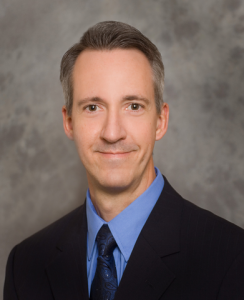
Originally from Albany, Wisconsin, Shawn Lerch brings more than 25 years of clinical and executive leadership experience to his role as Chief Executive Officer of Sauk Prairie Healthcare (SPH), a position he has held since 2017. Under Shawn’s leadership, SPH has consistently earned 5-star ratings from CMS for safety, quality, and patient experience. The organization is nationally recognized for excellence in patient-centered care, with standout performance in Orthopedics, Women’s Health, Medical Imaging, and Wound Care.
Shawn’s commitment to rural health began early in his career as a physical therapy assistant at Columbus Community Hospital, where he discovered a passion for serving rural communities. That passion has guided his leadership journey, including his tenure as CEO of Miners’ Colfax Medical Center in Raton, New Mexico—a state-sponsored rural health system known for its long-term care and nationally recognized pulmonary disease program for coal miners.
Shawn currently serves on the board of MetaStar, a Quality Improvement Organization, where he helps champion initiatives focused on rural and underserved populations. He is also engaged with the board of the Rural Wisconsin Hospital Cooperative, working collaboratively to expand access to care across the region.
Breakout sessions
This is an accordion element with a series of buttons that open and close related content panels.
From Stereotypes to Strategies: Transforming Rural Narratives and Advancing Health
John Eich, Director of Wisconsin Office of Rural Health
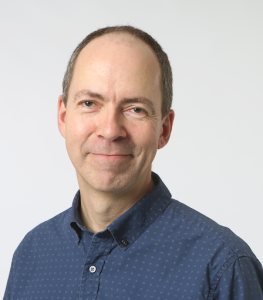
John Eich directs Wisconsin’s Office of Rural Health, which works to improve the access to, and quality of, rural healthcare in the state. His experience and skills are primarily in systems analysis and design, program planning and evaluation, and community development. He founded national initiatives on data use, EMS assessment, and AI integration, developing toolkits and resources for colleagues in 50 states.
Previously he directed a County Health Council in southern New Mexico—which assessed county health and wellness needs, built and maintained community coalitions to address them, and advocated for the county on a regional and statewide basis. During his tenure, the Council was selected as a model Council for the state, and recognized for its leadership in developing evaluation and data assessment tools.
His larger professional background is quite broad, and includes experience in the social services, advertising, and teaching. He grew up in rural Wisconsin.
Liz Bush, MA, MS, Director of Wisconsin’s Area Health Education Center (AHEC)

Liz Bush is the Program Director of Wisconsin Area Health Education Centers (AHEC) and faculty in the Master of Public Health Program at the University of Wisconsin–Madison. She leads statewide initiatives to strengthen community-based health professions training and expand access to primary care in rural and underserved areas. Liz brings over 20 years of experience in education, community health, and grants management, with prior leadership roles at the University of Wisconsin Extended Campus, a national education nonprofit, and the University of New Mexico–Gallup. She holds degrees in Psychobiology, Biomedical Anthropology, and Secondary Education, and is an AmeriCorps alumna committed to advancing health equity, education, and national service.
Hazel Behling, Rural Outreach Coordinator in the Department of Family Medicine and Community Health
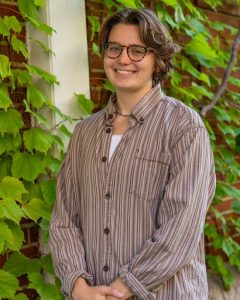 Hazel Behling, BA (they/them), is the Rural Outreach Coordinator in the DFMCH Office of Community Health. Hazel views their role through a systemic lens in hopes of centering the voices of those most impacted. Hazel attends coalition meetings to hear directly from the community, assists with community-led projects, presents research from the DFMCH SW WI Rural Health Needs Assessment, and mentors residents on rural community health projects. They hope to play a role in moving DFMCH and academic medical institutions toward co-creation and shared decision-making with historically underrepresented communities.
Hazel Behling, BA (they/them), is the Rural Outreach Coordinator in the DFMCH Office of Community Health. Hazel views their role through a systemic lens in hopes of centering the voices of those most impacted. Hazel attends coalition meetings to hear directly from the community, assists with community-led projects, presents research from the DFMCH SW WI Rural Health Needs Assessment, and mentors residents on rural community health projects. They hope to play a role in moving DFMCH and academic medical institutions toward co-creation and shared decision-making with historically underrepresented communities.
WARM mission and outcomes, addressing Wisconsin’s rural health disparities
Joseph Holt, MD, Director of the Wisconsin Academy of Rural Medicine
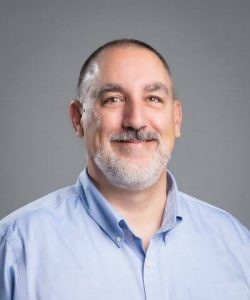 Dr. Joseph Holt is the Director of The Wisconsin Academy for Rural Medicine (WARM). After completing residency in Internal Medicine in he joined the Marshfield Clinic System in 2000 as a traditional internist with an emphasis on geriatrics, practicing in rural Northern Wisconsin in Rusk County. He joined the Division of Hospital Medicine within the Department of Medicine as an adult hospitalist in 2011. He has served as Director of the Wisconsin Academy for Rural Medicine since 2018 with the retirement of Dean Crouse, founder of WARM. Dr. Holt has a deep passion for addressing rural health disparities and advocating for the rural medicine needs of Wisconsin.
Dr. Joseph Holt is the Director of The Wisconsin Academy for Rural Medicine (WARM). After completing residency in Internal Medicine in he joined the Marshfield Clinic System in 2000 as a traditional internist with an emphasis on geriatrics, practicing in rural Northern Wisconsin in Rusk County. He joined the Division of Hospital Medicine within the Department of Medicine as an adult hospitalist in 2011. He has served as Director of the Wisconsin Academy for Rural Medicine since 2018 with the retirement of Dean Crouse, founder of WARM. Dr. Holt has a deep passion for addressing rural health disparities and advocating for the rural medicine needs of Wisconsin.
Health for the next seven generations: Reducing Stroke Risk Factors in a Wisconsin Tribal community
Carol Mitchell, PhD – Associate Professor, Department of Medicine, Division Cardiovascular Medicine, University of Wisconsin-Madison
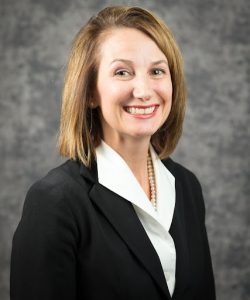
Dr. Carol Mitchell is an associate professor (CHS), ultrasound educator and researcher at the University of Wisconsin-Madison. She is a faculty member in the Division of Cardiovascular Medicine within the Department of Medicine and has an affiliate appointment with the Department of Medical Physics. Dr. Mitchell’s research focuses on i) utilizing ultrasound to characterize the structure and tissue composition of the arterial wall and atherosclerotic plaque, ii) developing imaging and measurement protocol to extract texture features from ultrasound images of the arterial wall and plaque, iii) utilizing existing ultrasound technology in novel ways to study hemodynamics and their relationships to cardiovascular disease and cognition, and iv) development of interactive learning modules to be used to enhance inter-professional knowledge of non-invasive testing procedures and improve ultrasound measurement and analyses techniques. The long-term goal of using these ultrasound parameters is to develop tools for assessing risk for and monitoring treatment of cardiovascular disease and cognitive impairment through monitoring changes in both clinical ultrasound and quantitative ultrasound parameters and to develop interactive learning tools for teaching ultrasound imaging techniques.
Amanda Riesenberg, Stroke Prevention Wellness Coach for the Oneida Nation
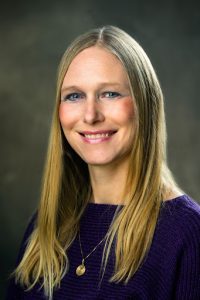
Amanda Riesenberg is a highly experienced Stroke Prevention Wellness Coach for the Oneida Nation. With over 20 years in the health and wellness industry, she holds certifications as a National Board Certified Health and Wellness Coach, Certified Personal Trainer, and Certified Group Exercise Instructor. Amanda’s extensive knowledge and enthusiasm make her a valuable resource for her clients, helping them achieve their wellness goals and prevent strokes through personalized coaching and support.
Amanda Riesenberg holds a Bachelor of Arts Degree in Exercise Science from Ripon College and an Associate Degree in Human Resources from Northeast Wisconsin Technical College, providing a strong academic foundation for her extensive expertise in fitness, wellness, and healthcare.
Throughout Amanda’s career, the focus has been on developing and managing innovative wellness programs that drive both individual and organizational health goals. Known for a compassionate and evidence-based approach, Amanda excels in creating personalized wellness plans, visions, and goals that not only prevent strokes but also enhance overall well-being.
Amanda’s philosophy is to help each person achieve their full wellness potential and goals. Believing that each person’s wellness journey is unique, Amanda values, appreciates, and understands the individuality of each client’s goals. This personalized approach ensures that every wellness plan is tailored to meet the specific needs and aspirations of each individual.
Dedicated to empowering individuals to achieve their health goals, Amanda combines expertise with a genuine commitment to making a positive impact. Whether working one-on-one with clients, leading groups sessions, coordinating events, or working in the community Amanda’s engaging and motivational style inspires lasting change and a healthier lifestyle.

Questions about this event? Contact SMPH Signature Events at smphevents@med.wisc.edu.
High-quality masks will be available at the event.
Accessibility statement:
The University of Wisconsin School of Medicine and Public Health is committed to accessibility. If you need an accommodation to attend or participate in this event, please contact the SMPH signature events team at smphevents@med.wisc.edu. We ask that accommodation requests be made no less than two weeks before an event. We will make a thorough attempt to fulfill requests made after this date but cannot guarantee they will be met.